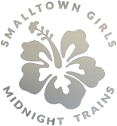*
The Republic of the Philippines’ Civil Aviation Regulations Part 7: Instrument and Equipment mandates most passenger aircraft to carry at all times a first aid kit, a universal precaution kit, and an emergency medical kit.
Note: From what I understand of the language in the document, the CAR requires that planes have these kits but only provide guidance on the actual contents of the kits. (IS: 7.8.11 only states: “The following provides guidance on typical contents of first-aid, universal precaution and medical kits.”) Therefore, it’s possible that there may be some variation in the contents of the kits of different airlines.
*
First Aid Kits
_
Required for:
- Airplanes with a maximum certificated take-off weight of over 5,700 kg
- All Air Operator Certificate (AOC) holders
Recommended contents:
- Antiseptic swabs (10/pack)
- Bandage: adhesive strips
- Bandage: gauze 7.5 cm × 4.5 m
- Bandage: triangular, safety pins
- Dressing: burn 10 cm × 10 cm
- Dressing: compress, sterile 7.5 cm × 12 cm
- Dressing: gauze, sterile 10.4 cm × 10.4 cm
- Tape: adhesive 2.5 cm (roll)
- Steri-strips (or equivalent adhesive strip)
- Hand cleanser or cleansing towelettes
- Pad with shield, or tape, for eye
- Scissors: 10 cm (if allowed by national regulations)
- Tape: adhesive, surgical 1.2 cm × 4.6 m
- Tweezers splinter
- Disposable gloves (multiple pairs)
- Thermometers (non-mercury)
- Mouth to mouth resuscitation mask with one-way valve
- First-aid manual, current edition
- Incident record form
- Mild to moderate analgesic (as allowed by national regulations)
- Antiemetic (as allowed by national regulations)
- Nasal decongestant (as allowed by national regulations)
- Antacid (as allowed by national regulations)
- Antihistamine (as allowed by national regulations)
*
Universal Precaution Kits
_
Required for:
All aircraft that require a cabin crew member
Recommended contents:
- Dry powder that can convert small liquid spill into a sterile granulated gel
- Germicidal disinfectant for surface cleaning
- Skin wipes
- Face/eye mask (separate or combined)
- Gloves (disposable)
- Protective apron
- Large absorbent towel
- Pick-up scoop with scraper
- Bio-hazard disposal waste bag
- Instruction
*
Emergency Medical Kits
_
Required for:
Passenger flights on planes with 30 or more seats
Recommended contents:
- Stethoscope
- Sphygmomanometer (electronic preferred)
- Airways, oropharyngeal (3 sizes)
- Syringes (appropriate range of sizes)
- Needles (appropriate range of sizes)
- Intravenous catheters (appropriate range of sizes)
- Antiseptic wipes
- Gloves (disposable)
- Needle disposal box
- Urinary catheter
- System for delivering intravenous fluids
- Venous tourniquet
- Sponge gauze
- Tape – adhesive
- Surgical mask
- Emergency tracheal catheter (or large gauge intravenous cannula)
- Umbilical cord clamp
- Thermometers (non mercury)
- Basic life support cards
- Bag-valve mask
- Flashlight and batteries
- Medications:
- Epinephrine 1 : 1000
- Antihistamine – injectable
- Dextrose 50% (or equivalent) – injectable: 50ml
- Nitroglycerin tablets, or spray
- Major analgesic
- Sedative anticonvulsant – injectable
- Antiemetic – injectable
- Bronchial dilator – inhaler
- Atropine – injectable
- Adrenocortical steroid – injectable
- Diuretic – injectable
- Medication for postpartum bleeding
- Sodium chloride 0.9% (minimum 259ml)
- Acetyl salicylic acid (aspirin) for oral use
- Oral beta blocker
- Epinephrine 1 : 10000 (can be a dilution of epinephrine 1 : 1000)
*
The CAAP website is occasionally unreachable so you can also find a copy of the CAR Part 7 HERE.

Medical Supplies Mandated by the Philippine Civil Aviation Regulations
© Small-Town Girls, Midnight Trains. All rights reserved. Contents verified as of 26 May 2016.
